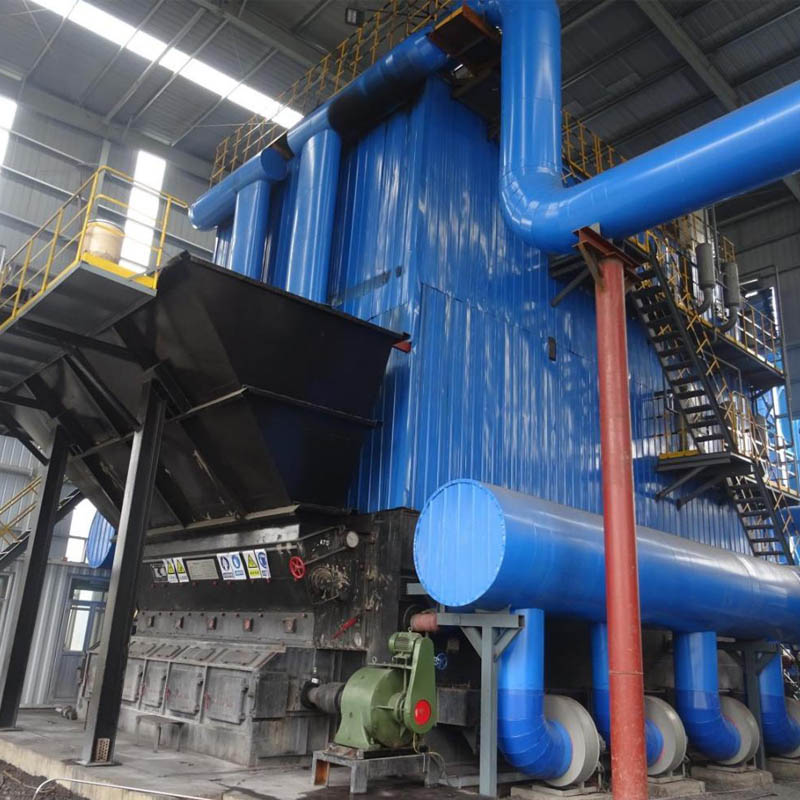
កញ្ញា . 30, 2024 01:52 Back to list
Understanding the Functionality and Applications of Steam Flow Boilers in Industry
Steam Flow Boiler An Overview of Functionality and Applications
A steam flow boiler, commonly referred to simply as a boiler, is an essential component in various industries, serving the primary purpose of generating steam. Steam is utilized for a multitude of purposes, including power generation, heating, and as a driving force for various industrial processes. This article aims to provide an overview of steam flow boilers, exploring their functionality, applications, and key considerations for operation and maintenance.
Understanding the Functionality of Steam Flow Boilers
At its core, a steam flow boiler converts water into steam through the application of heat. The heat source can be generated from different fuels, including natural gas, oil, coal, or through electricity. A boiler essentially consists of a combustion chamber where the fuel is burned, and heat is exchanged with water in a heat transfer system.
The process begins with water being fed into the boiler, where it is heated in the combustion chamber. As the water heats up, it undergoes a phase change and converts into steam. The steam generated is then collected and directed to various systems where it can be utilized, resulting in various forms of energy transformation and application.
Types of Steam Flow Boilers
There are several types of steam flow boilers, each suited for specific applications and operating conditions. The most common types include
1. Fire-Tube Boilers In this type, hot gases from the combustion process pass through tubes surrounded by water. The heat is transferred from the gases to the water, producing steam. Fire-tube boilers are typically compact and easy to operate, making them popular for smaller facilities.
2. Water-Tube Boilers In contrast, water-tube boilers feature water-filled tubes that are heated from the outside by hot gases. These boilers are more efficient and can produce steam at higher pressures and temperatures, making them suitable for large industrial applications.
3. Flexible Water-Tube Boilers A variant of water-tube boilers, these are designed for quick start-up and for applications where varying steam loads are required. They offer flexibility and efficiency, catering to industries with fluctuating steam demands.
4. Electric Boilers These boilers utilize electrical energy to generate steam and are used primarily in applications where clean steam is needed or where traditional fuel sources are impractical.
Applications of Steam Flow Boilers
Steam flow boilers play an integral role in a wide array of industries. Some notable applications include
steam flow boiler

- Power Generation In thermal power plants, steam boilers convert water into steam to drive turbines, which in turn generate electricity. This is a crucial process for meeting the energy demands of societies.
- Manufacturing In various manufacturing processes, steam is essential for heating, sterilization, drying, and maintaining specific temperatures required for chemical reactions.
- Food Processing In the food industry, steam is used in cooking, pasteurization, and cleaning. Steam boilers ensure that food products are processed safely and efficiently.
- Heating Many buildings rely on steam boilers for central heating systems, delivering warmth through radiators and heat exchangers.
Key Considerations for Operation and Maintenance
To ensure the efficient and safe operation of steam flow boilers, several considerations must be taken into account
1. Regular Inspections Scheduled inspections are crucial for identifying wear and tear, leaks, or any other issues that could impair performance.
2. Water Quality Maintaining the appropriate water quality is essential to prevent scaling and corrosion, which can drastically reduce boiler efficiency and lifespan.
3. Safety Mechanisms Boilers must be equipped with safety devices such as pressure relief valves and automatic shut-off systems to prevent hazardous situations.
4. Training and Certification Operators should be adequately trained and certified to ensure they can manage the complex systems safely and effectively.
Conclusion
Steam flow boilers are vital components for a variety of industries, providing essential steam for power generation, manufacturing, and heating applications. Understanding their functionality, types, applications, and maintenance considerations is key to leveraging their potential while ensuring safety and efficiency. As industries continue to evolve and seek efficient energy solutions, steam flow boilers will remain an indispensable part of the industrial landscape.
-
Efficient Biomass Fired Hot Water Boiler | AI Heating Solution
NewsAug.01,2025
-
High-Efficiency Gas Thermal Oil Boilers | HPT Models
NewsJul.31,2025
-
Oil Fired Hot Water Boilers Sale - High Efficiency & Affordable
NewsJul.31,2025
-
High-Efficiency Commercial Oil Fired Steam Boiler for Industry
NewsJul.30,2025
-
High-Efficiency Biomass Fired Thermal Oil Boiler Solutions
NewsJul.30,2025
-
High Efficiency Gas Fired Thermal Oil Boiler for Industrial Heating
NewsJul.29,2025
Related PRODUCTS






















